He was speaking after the dramatic rescue of more than 130 human trafficking kidnap victims in Takuapa, a town north of the Thai holiday island of Phuket.
The men and boys were snatched by ransom gangs in Bangladesh for probable sale as work slaves in Malaysia or Indonesia - then saved at the weekend by the intervention of a provincial district director and concerned local activists in Thailand.
Most of the men and boys were randomly captured near their homes and transported in the hold of a fishing trawler to Thailand for likely eventual trade to buyers through jungle camps in Thailand's south.
The mass kidnappings are a sign that human trafficking in Thailand may get worse before it gets better without orders from the highest levels of government to ensure an approach that ends enslavement and brutality, rather than covering it up.
Over the past few years, buying and onselling stateless Rohingya boatpeople fleeing persecution in Burma has become a lucrative cottage industry along Thailand's Andaman coast, with little law enforcement being applied.
In the space of four days since Saturday, when the first group of 53 kidnapped passengers from Bangladesh was rescued, the attitude in Phang Nga appears to have changed.
''We have to work with every sector on this issue,'' Governor Prayoon told Phuketwan today.
''I have ordered Takuapa Police Station to follow the law to international standards, with proper translation and application of all requirements.
''The lowering of Thailand to Tier 3 on the US State Department's Trafficking in Persons register has made our reputation look bad.
''We need to correct this as soon as we possibly can.''
The governor's message was backed by the Director of the Takuapa District, Manit Pleantong, who said: ''My aim is to arrest the big people who have been responsible for this human trafficking.''
It was his initial work in arresting a group of 37 Rohingya who were being trafficked south in pickups on September 24 that led to the change in approach.
Local police processed the Rohingya as ''illegal immigrants,'' the convenient method for avoiding a detailed investigation that could make Thailand look bad and seriously interrupt the work of the local people traders.
As a result, on Saturday after the apprehension of the 53 men and boys from Bangladesh - 16 were long-term residents of a Rohingya refugee camp - Khun Manit and local Muslim, Catholic and Buddhist activists processed the apprehended men themselves by undertaking extended one-on-one interviews.
Soon after, that group was declared to be human trafficking victims by the Takuapa police superintendent, Colonel Noppadon Thiraprawat. He accepted the documentation, compiled using independent translators.
Another group of 81 men emerged in a rescue from a secret island camp on Monday. Only one was a Rohingya.
The rest were all Bangladeshi citizens who said they had been kidnapped. They had no desire to leave their homes.
Some had been in the hands of the human traffickers for up to a month. Just one of those men said he was travelling to Malaysia voluntarily.
Last night, the original 37 captured Rohingya were freed after serving 20 days in Takuapa Jail, with 200 baht being deducted each day in lieu of the 4000 baht fine they were each unable to pay.
Governor Prayoon today ordered Takuapa police to reopen the case and to treat the Rohingya as possible victims of human traffickers this time, not just as ''illegal immigrants.''
A full review will mean the use of independent translators and a more thorough assessment.
Two Thai men arrested with the Rohingya were not charged with human trafficking.
Three Thai men arrested with the Bangladeshi kidnap victims have been charged with trafficking offences, and police are hunting others.
Whether the serious approach to human trafficking remains in place depends on leading members of the military government of Thailand. Some are former police.
The local community in Takuapa has made its feelings known. Muslims, Catholics and Buddhists have acted to end the new scourge of kidnapping - and the human trafficking that has plagued the Andaman coast for years.
Any attempt at this point by Thai officials to have the men's categorisation as human trafficking victims reversed would probably keep Thailand on the Tier 3 level for several years.
The individual cases have been fully documented and the international media has reported what transpired.
Now it's up to the government in Bangkok to prove that it too has turned a corner on human trafficking.

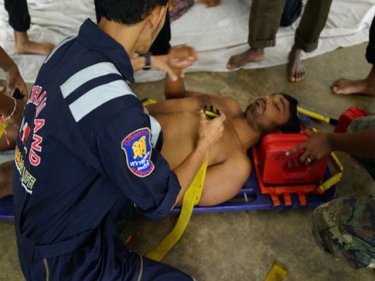





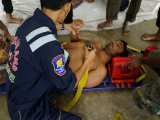
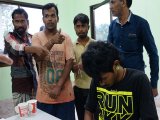
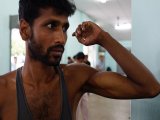

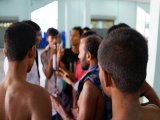
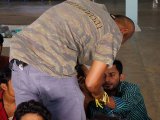
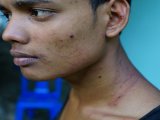

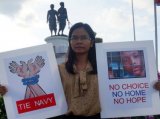
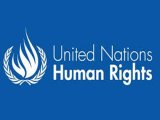

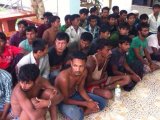



Hopefully a significant first step towards a sustained effort to halt this disgusting human trade.
A fantastic effort by all involved
Posted by spud67 on October 15, 2014 13:46